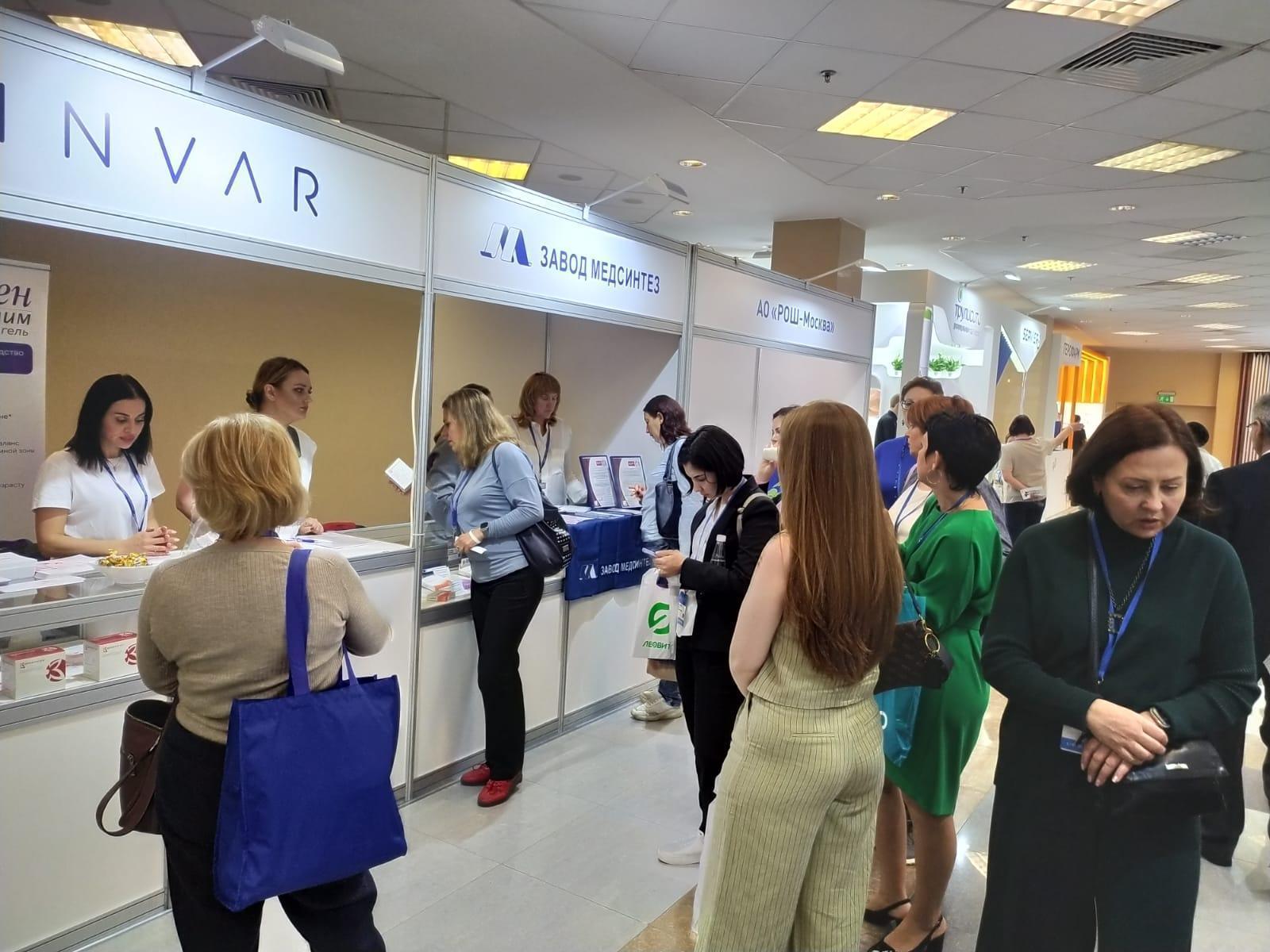- Home
- News
- The Medsintez Plant presented analogue insulin preparations from its own substance at the 10th (20th) National Congress of Endocrinologists in Moscow
The Medsintez Plant presented analogue insulin preparations from its own substance at the 10th (20th) National Congress of Endocrinologists in Moscow

From May 23 to 26, 2023, the 10th (29th) National Congress of Endocrinologists with international participation Personalized Medicine and Practical Healthcare organized by the Russian Association of Endocrinologists and and the Federal State Budgetary Institution National Medical Research Center for Endocrinology of the Ministry of Health of Russia was held in Moscow. Among the leading domestic and foreign pharmaceutical manufacturers the Medsintez Plant as usual presented its main products at the booth – preparations of genetically engineered and analogue human insulin Rosinsulin.
The Medsintez Plant is one of the first industrial production facilities in Russia for finished dosage forms of genetically engineered human insulin that meet the requirements of GMP EC. Since 2009, the Plant has been providing the country with high-quality insulin preparations, being an active participant in implementing import substitution programs for medicines in the Russian Federation for all these years. The Plant’s annual production capacity is 10 billion IU, which allows to meet 100% of Russia's demand for insulin preparations. The Medsintez Plant provides sustainable medicine supply for Russian patients with diabetes.
An important event in 2023 for the Medsintez Plant was the inclusion of its own analogue medicine Rosinsulin Glargine in the State Register of Medicines. Thus, the Plant has implemented the full-cycle production of the entire line of products of genetically engineered human insulin Rosinsulin and analogue insulins – Rosinsulin Aspart R and Rosinsulin Glargine from its own substances. In 2023, the Plant is preparing to release the first Russian insulins for veterinary use. Domestic production of medicines does not depend on rate fluctuations, which means that it offers favorable prices for finished products in comparison with imported analogues.
A principal concern for the Medsintez Plant is the health of people who use our medicines. High-tech production ensures a high level of quality and safety of manufactured medicines. Based on the clinical trial results, the analogue insulins – Rosinsulin Aspart R and Rosinsulin Glargine are fully bioequivalent and interchangeable with reference preparations. Rosinsulin is produced in the most convenient and familiar dosage forms for consumers – in vials, cartridges and injection pens.

The Plant’s technological capacities, competencies in biotechnological processes, interaction with scientific institutions, as well as the ability to develop and produce own devices for administering injectable drugs opens up the horizons for the Medsintez Plant in developing new peptide preparations. Today the Plant is working on a number of projects to expand the line of insulin preparations.
As part of the business program of the Congress, leading experts in the field of endocrinology discussed new promising scientific projects focused on fundamental research and the implementation of a multidisciplinary approach in treating patients with endocrine pathology. Nearly thirty important topics were discussed, such as personalization of diagnostic and treatment tactics, selection of optimal treatment methods based on evidential medicine, as well as the implementation of scientific and educational themed events based on the suggestions and requests of regional specialists.
The congress included a meeting of the dedicated endocrinology commission under the Expert Council of the Ministry of Health of the Russian Federation, where the issues of organizing diabetic specialist service, personnel training, considering draft clinical recommendations and specific tasks to improve early diagnosis of diabetes mellitus and its complications and other endocrine diseases, and improving the effectiveness of treatment in general were considered.


































































































































